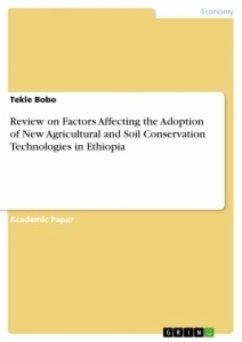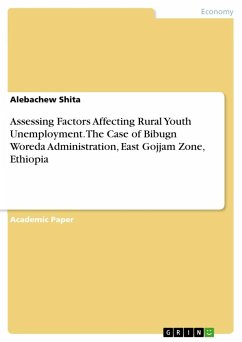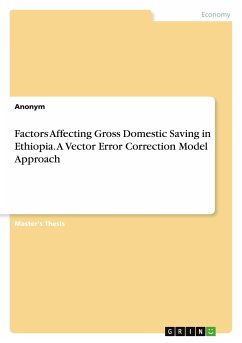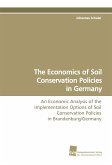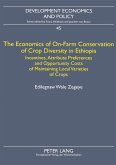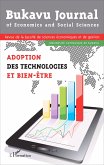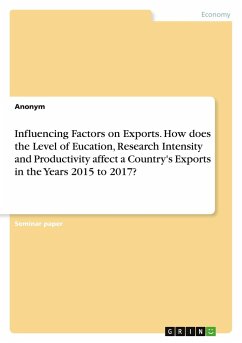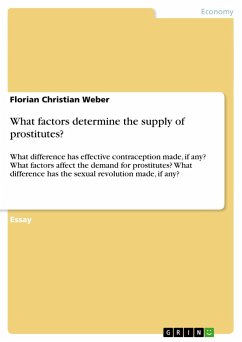Academic Paper from the year 2021 in the subject Economy - Environment economics, , language: English, abstract: The paper specifically aims to review factors affecting adoption of agricultural and soil water conservation Technologies in Ethiopia with objective of assessing factors affecting adoption of agricultural and soil conservation technologies. Development programs in Ethiopia over the past two decades have included several new technologies. Among the most recently introduced are improved seed, pesticides, improved on farm storage techniques, methods of small scale irrigation and fertilizer usage and different scheme soil water conservation practices. However, there has not been a wide-spread provision and adoption of these technologies in Ethiopia. Various socioeconomic factors and the degree of risk aversion may be the causes of adoption rates. Low adoption of agricultural technology country results low farm productivity and high incidence of poverty and food insecurity in Ethiopia. From the review factors affecting adoption of new agricultural technology and soil water conservation is categorized under Demographic, socioeconomic and Institutional variables. The variables significantly affect the adoption of agricultural new and soil conservation technologies in farmers specific are age, education level, family size, farm size, extension service provision and credit access. To solve problems of inadequate use of production technologies, decision makers have pursued a range of policies and strategies to boost agricultural production and productivity by understanding adoption status and factors affecting adoption of agricultural and soil water conservation technologies crucial issues in Ethiopia.
Hinweis: Dieser Artikel kann nur an eine deutsche Lieferadresse ausgeliefert werden.
Hinweis: Dieser Artikel kann nur an eine deutsche Lieferadresse ausgeliefert werden.

